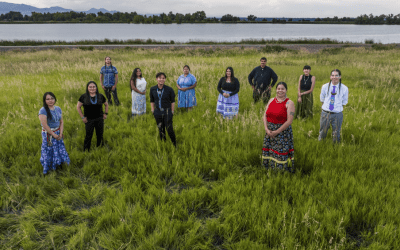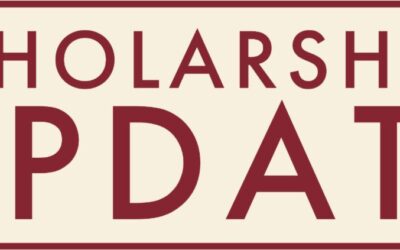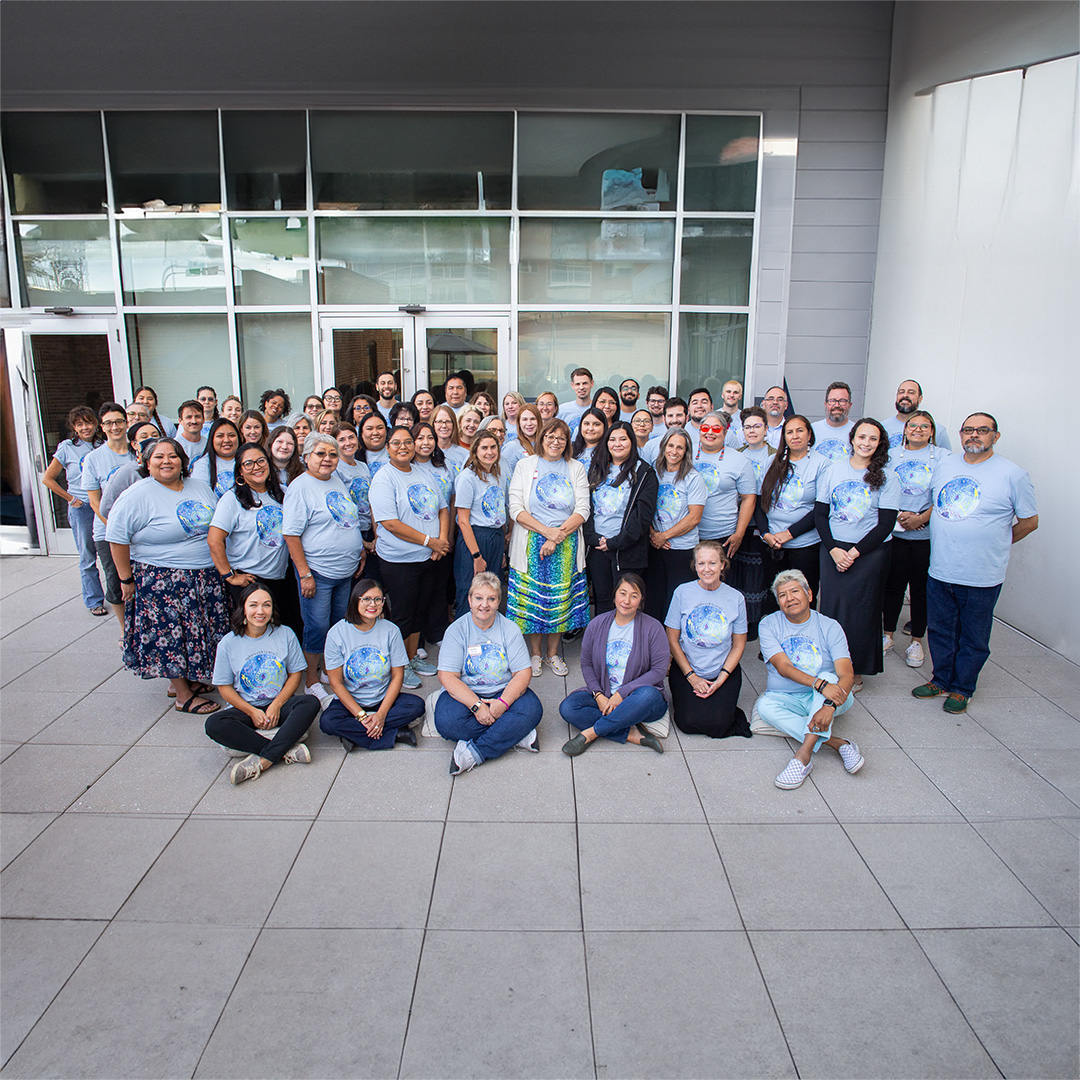American Indian College Fund Sponsors Five Tribal College Environmental Science Programs
Program to Develop Culturally Relevant Science Programming to Benefit Tribal Communities and Lands in Northern Great Plains States
Denver, Colo.—August 5, 2021–The American Indian College Fund’s Obdaya Opta Tate Kin Kah’Boke (Winds Blowing Across the Prairie) project will provide tribal colleges and universities (TCUs) located on or near Indian reservations in the Northern Great Plains (NGP) region to build environmental science programs benefitting their Tribal communities. Obdaya Opta Tate Kin Kah’Boke is designed to build institutional capacity; develop vocational and post-secondary education programming and community outreach; and develop strategic partnerships and place-based research and stewardship opportunities to strengthen Tribal nations, Tribal homelands, and the NGP region the colleges serve. By integrating Indigenous inter-generational place knowledge into environmental and natural science programming while developing a community of practice, the TCUs will implement projects to address the specific needs of the NGP region.
The NGP region is home to Tribal Nations holding an estimated 11,250,000 acres of land and contains the most intact portion of the Mississippi River watershed, the largest in the United States. The Missouri River, which extends through the region in Montana, North Dakota, and South Dakota, contributes almost half of the water that flows into the Mississippi River and an estimated 50 percent of the silt that arrives in the Gulf of Mexico. The World Wildlife Fund states the region is home to an estimated 1,600 plant species, 95 mammal species, 220 species of butterfly, and 200 bird species.
The project name, Tate kin obdaya opta kah’boke (Winds Blowing Across the Prairie), was chosen to acknowledge the energy expended over years, generations, and seasons over this vast landscape and the resulting ways that wind, time, lands, waters, and people form and inform relationships with and stewardship and care of these homelands. The project is geared to examine threats to the region’s environmental and social health, including habitat fragmentation due to ranching and agriculture, biofuel crops, oil and gas development, climate change, and social issues such as human trafficking, Missing and Murdered Indigenous Women (MMIW), and the influx of the drug methamphetamine due to the influx of man camps at mineral and oil and gas sites.
The Winds Blowing Across the Prairie project positions TCUs to revitalize their programming to support students to steward their land, waters, livestock, and agriculture grown traditionally.
The following five tribal colleges and universities’ projects were awarded two-year grants for the program and will be participating in the community of practice. The colleges and their projects include:
Aaniiih Nakoda College (ANC), located in Harlem, Montana will strengthen its Aaniiih Nakoda Ecology B.S. degree program through a collaborative course revision process. The result will be at least twelve revised course syllabi (six per year and 12 total). ANC will also support two faculty fellowships and four student fellowships, as well as faculty professional development programs focused exclusively on providing instructors with immersive learning experiences that will increase their knowledge and understanding of local traditional ecological knowledge. Dr. Sean Chandler, President of ANC, said, “Through collaborative curriculum enhancement, faculty professional development, student fellowships, and partnership activities with peers at other TCUs, the project will build the one-of-a-kind ecology program’s capacity to provide outstanding community- and place-based learning opportunities grounded in the Indigenous lifeways of Aaniinen and Nakoda nations.”
Fort Peck Community College (FPCC), located in Poplar, Montana, will enhance its Environmental Science degree program to ensure students meet core areas of learning for successful transfer to four-year institutions. Further goals are to integrate more place-based, experiential learning activities, traditional ecological knowledge, native language, cultural knowledge, and class projects that address community needs to train future environmental professionals to work in tribal communities in the NGP. FPCC will support two student internships while using this project to develop a more formal internship process within the Environmental Science program. FPCC will also support faculty professional development. Faculty will be taking a native plant species identification course, Native studies course, and will focus on knowledge building Indigenous pedagogy for successful integration into the Environmental Science and Biology program.
Nueta Hidatsa Sahnish College (NSC), located in New Town, North Dakota, is developing a new virtual community education program in master gardening and holistic health, integrating cultural knowledge to respond to community needs for more local food production. NHSC will also engage multiple partners and stakeholders to co-create a ten-year strategic plan for food sovereignty in the community, and plan for the long-term re-design of for-credit courses. The program will also support two student interns and four to six professional development opportunities for project team members, including but not limited to participation in the Community of Practice. Dr. Twyla Baker, President of NSC, said, “We are the college of the Mandan Hidatsa Arikara Nation, a historically agrarian Native Nation, so it is incredibly fitting that we embark upon a project of this nature that revitalizes and nurtures our historical knowledge and ensures its future. I am so thankful to our partners at the American Indian College Fund for the opportunity, and I look forward to strengthening our community together.”
Sitting Bull College (SBC), located in Ft. Yates, North Dakota, will enhance its existing agriculture program by developing culturally responsive education and research opportunities in agroforestry. Faculty members, students, practitioners, and community members will be engaged in the program with the goal of protecting, healing, and sustaining culture and ecosystems within the NGP. The program will support 10 undergraduate student internships, two graduate student internships, and 2-4 student fellowships. President Laurel Vermillion said, “SBC’s Environmental Stewardship project involves capacity building and community of practice in agroforestry. The aim is to enhance agroforestry knowledge through education and extension, expand impact, and engage Tribal Nation communities to adopt agroforestry practices for food sovereignty and environmental conservation. Some of the objectives for this project include protecting and conserving native plants, developing more natural systems for shelter and shade, incorporation of culture in all courses, sharing of knowledge from the communities, providing internship opportunities, and growing the idea of planting more trees to help with carbon sequestration. It is also our hope that improved and well-established agroforestry courses at SBC will lead to a degree offering in agroforestry.”
United Tribes Technical College (UTTC), located in Bismarck, North Dakota, will develop new environmental engineering coursework in its Canteyukun Wounspe Program for its approved Associate of Science Degree in Environmental Engineering. It will also develop student design challenges. All program materials will be relevant to Tribal students and sister site communities, which include the Mandan Hidatsa Arikara, Standing Rock, Spirit Lake, Turtle Mountain, and Sisseton-Wahpeton Tribal Nations. UTTC will support one faculty fellowship, two student internships, and five modified student fellowships. UTTC will also develop a collaborative advisory board with representatives from each of the Tribal Nation communities their institution serves to provide insights and feedback on program development. Dr. Leander McDonald, President of UTTC, said the program will enhance future indigenous engineers’ knowledge of caring for Unci Maka (Grandmother Earth) by helping them to become land stewards and community leaders. “United Tribes Technical College recognizes and appreciates the 30-plus years of support, partnership, and collaborations provided by the American Indian College Fund.”
In addition to the above TCUs being selected for their programs, Little Big Horn College (LBHC), located in Crow Agency, Montana, will participate in the Community of Practice portion of the project. Sara Plaggemeyer (LBHC Natural Resource Program Faculty) and Emerson Bull Chief (LBHC Academic Dean) were selected to represent LBHC by the college. LBHC is enthusiastic about developing partnerships with TCUs throughout the NGP region and identifying ways to incorporate more Crow language and culture into their existing natural resource programs and other learnings.
Photo: A selection of traditional foods and medicines at Nueta Hidatsa Sahnish College serving the Three Affiliated Tribes of the Fort Berthold Reservation in North Dakota. NHSC is developing a new virtual community education program in master gardening and holistic health, integrating cultural knowledge and respond to community needs for more local food production.
About the American Indian College Fund—The American Indian College Fund has been the nation’s largest charity supporting Native higher education for 31 years. The College Fund believes “Education is the answer” and provided $9.25 million in scholarships to American Indian students in 2019-20, with scholarships, program, and community support totaling over $237 million since its inception. The College Fund also supports a variety of academic and support programs at the nation’s 35 accredited tribal colleges and universities, which are located on or near Indian reservations, ensuring students have the tools to graduate and succeed in their careers. The College Fund consistently receives top ratings from independent charity evaluators and is one of the nation’s top 100 charities named to the Better Business Bureau’s Wise Giving Alliance. For more information about the American Indian College Fund, please visit www.collegefund.org.
Journalists: The American Indian College Fund does not use the acronym AICF. On second reference, please use the College Fund.







